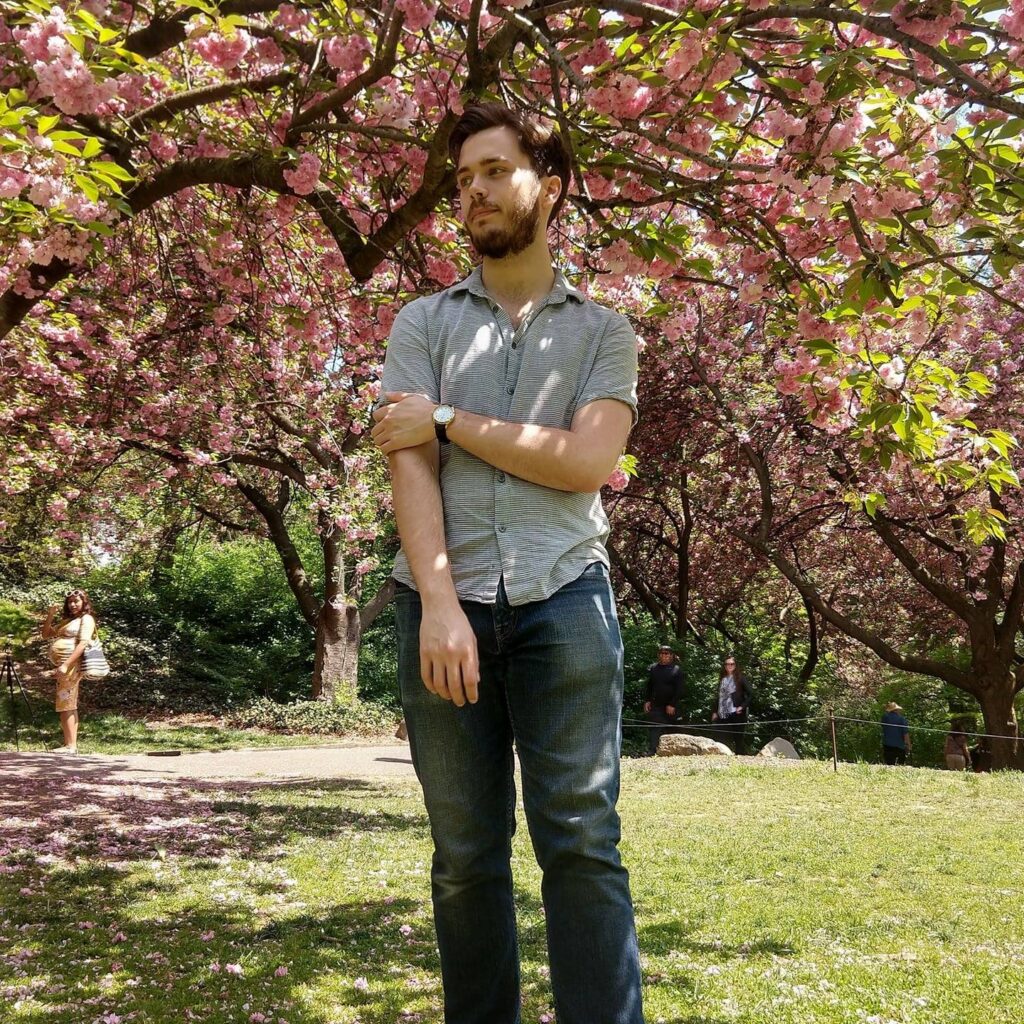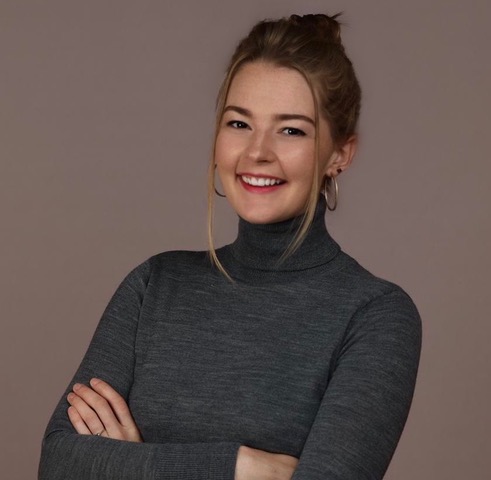 Dante Fumagalli is a 2017 summa cum laude graduate of Southern Oregon University, with a double major in English and Art History. A member of the founding class of SOU’s Honors College, he was the 2017 student commencement speaker.
Dante Fumagalli is a 2017 summa cum laude graduate of Southern Oregon University, with a double major in English and Art History. A member of the founding class of SOU’s Honors College, he was the 2017 student commencement speaker.
Ed Battistella: What is your graduate school experience like so far, both in New York and now in Eugene?
Dante Fumagalli: I’ve had very different experiences in New York and in Eugene! I only made it through one semester in New York attending the Art History master’s program at Hunter College. It was a very academic program and I enjoyed all of my classes a lot, but I came to the realization that I rushed into graduate school without giving more thought to my long-term goals. I wasn’t sure what I planned to do with my Master’s so I came to the difficult decision to put off graduate school after that first semester.
Ultimately, I’m very glad I did that! I spent the next two years living and working in New York and realized that what I appreciated most about my work in museum education was the connections I would make with students with disabilities. This prompted me to check out the Master’s program in Special Education at the University of Oregon, where I’m now in my second year. I love the mixture of application and theory that a program like this provides – it’s really fulfilling to be able to use concepts we discuss in my graduate courses practically in my practicum site!
EB: What’s are your long-term plans?
DF: I went into this program with the idea that I would work specifically on reading interventions with students with reading disabilities. I think that this would be a great way to combine the skills I acquired during undergrad studying English with my current studies in special education. However, this term my practicum site is with a functional skills classroom at a local high school and I’ve been really loving it. I’m teaching a unit on functional reading skills which has me considering whether a life skills or functional skills setting might be a better fit for me. I want to make sure I keep my options open because I know that I will be graduating with this degree and entering into a field with great need so there is room for flexibility in where I go from here.
EB: What has been the most interesting part of your studies so far?
DF: My favorite thing about my program has been applying course content into my practice with my students. I’m currently taking a course called Design of Instruction and I feel like each week I’ve learned about a new principle of design that I can use to improve the instruction I am providing my students. It feels really gratifying to be able to apply the things I’m learning and see results with my students.
EB: What courses have you taking?
DF: During my first year, I took: Foundations of Disabilities, Behavior Management, Assessment in SPED, SPED Law, Diversity in SPED, Supporting Students with Low-Incidence Disabilities, SPED Math and a year long sequence on literacy. This year, I have taken Advanced Behavior Management, Design of Instruction, Practicum, and Professional Practices. Over the next two terms I will be taking a two-course sequence on transition programming which I’m very excited for!
EB: What’s been the best thing you’ve read as a grad student?
DF: We recently read some very interesting articles by Lisa Delpit regarding intersections between equity, access, and inclusion with traditional skill-based teaching methods and the liberal ethos of fluency-based instruction. She argues that many students of color already exhibit fluency but within different dialectical contexts than their white peers and that this liberal mindset does not address the skill gaps between these students properly, leaving students of color at a deficit. I would highly recommend that educators read Delpit’s writing!
EB: What has been the hardest part of grad school?
DF: The hardest part has definitely been time management and finding time for self-care. Especially now that school is all done remotely, I find myself sitting at my desk for hours upon hours each day and have a hard time pulling myself away to take mental health breaks.
EB: What’s next for you?
DF: I would love to find a job within the 4J school district here in Eugene at the end of this year when I graduate. I’ve grown to really like this city and I would like to continue to foster the community relations that I’ve been able to establish through my practicum here so far.
EB: What do you know now that you wished you knew earlier?
DF: You don’t need to rush into graduate school! It’s okay to take the time to figure out exactly what you want before applying.
EB: Thanks for talking with us!
DF: Thank you!

 Follow
Follow Born in Lewiston, Idaho, Kendall Meador moved up and down the west coast before completing her BA in English at Southern Oregon University. She is currently pursuing a PhD in American literature at Southern Methodist University in Dallas, TX. In her free time, she enjoys writing poetry and cooking.
Born in Lewiston, Idaho, Kendall Meador moved up and down the west coast before completing her BA in English at Southern Oregon University. She is currently pursuing a PhD in American literature at Southern Methodist University in Dallas, TX. In her free time, she enjoys writing poetry and cooking. 
